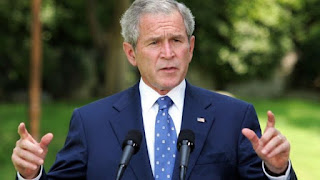"Caffeine dose is not the whole story: perhaps our expectations also determine how alert we feel"
Dosing subjects with either tea or coffee, one (admittedly small) study found that both beverages left subjects feeling similarly alert later in the morning. Although that study was based on self-reported feelings of alertness, clear differences have failed to emerge in more objective measures of concentration, either – such as reaction times. Indeed, when you dose up on tea made to the equivalent strength as coffee, it actually proves to be more effective at sharpening the mind.
The scientists conclude that the caffeine dose is not the whole story: perhaps our expectations also determine how alert we feel, or it could be that it’s the overall experience of the tastes, and smells, of our favourite drink that awakens our senses.
Verdict: Against logic, tea seems to provide just as powerful a wake-up call as coffee. It’s a draw.
Sleep quality
The biggest differences between coffee and tea may emerge once your head hits the pillow.
Most dentists seem to agree that than coffee’s – particularly if you use a mouthwash containing the common antiseptic chlorhexidine, which seems to attract and bind to the microscopic particles.
Verdict: If you want a perfect smile, coffee may be the lesser of two evils.
A balm for troubled souls…In England, it’s common to give “tea and sympathy” to a distressed friend – the idea being that a cup of Earl Grey is medicine for troubled minds. In fact, there is some evidence that tea can soothe your nerves: regular tea drinkers do tend to show a calmer physiological response to unsettling situations (such as public speaking), compared to people drinking herbal infusions. Overall, people who drink three cups a day appear to have a 37% lower risk of depression than those who do not drink tea.
There is some evidence that tea can soothe your nerves
Coffee doesn’t have the same reputation; indeed, some report that it makes them feel like their nerves are jangling. Yet there is some evidence that it too may protect against long-term mental health problems. A recent “meta-analysis” (summarising the results of studies involving more than 300,000 participants) found that each cup of coffee a day seems to reduce your risk of developing depression by around 8%. In contrast, other beverages (such as sweetened soft drinks) only increase your risk of developing mental health problems.
Verdict: Based on this limited evidence, it’s a draw.
…and a balm for bodiesSimilarly tantalising, though preliminary, epidemiological studies have suggested that both coffee and tea offer many other health-giving benefits. A few cups of either beverage a day appears to reduce your risk of diabetes, for instance. (The exact size of the benefit is still under discussion – estimates vary from around 5 to 40%.) Since even decaf coffee confers the same benefits, it seems likely that other nutrients may be oiling the metabolism so that it can still efficiently process blood glucose without becoming insensitive to insulin – the cause of diabetes.
A few cups of either beverage a day appears to reduce your risk of diabetes
Both drinks also seem to moderately protect the heart, although the evidence seems to be slightly stronger for coffee, while tea also appears to be slightly protective against developing a range of cancers – perhaps because of its antioxidants.
Verdict: Another draw – both drinks are a surprising, health-giving elixir.
Overall verdict: Much as we Brits would have liked tea to come out the clear victor, we have to admit there is little between the two drinks besides personal taste. Based solely on the fact that it allows you to get a better night’s sleep, we declare tea the winner – but why not share your own thoughts with us through social media?






